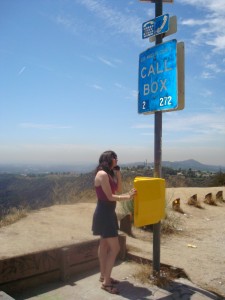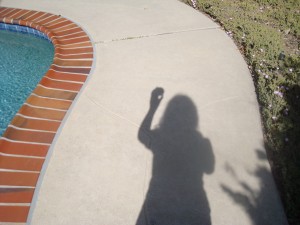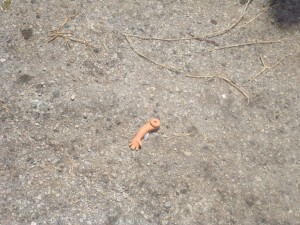Will Chaos Make Us Smarter?
Apr 28th, 2011 by Lisa Jacobs
In Everything is Miscellaneous, David Weinberger warns that by storing thousands of digital photos with automatically generated names, we are effectively throwing them out. We’ll never find them again, he argues. Or when we do, we’ll certainly wonder about them. Here’s what I’m wondering about my own forgotten images:
Picture 721. Why is this girl using the call box? Who took this picture? Is this girl really in trouble? Is this someone’s idea of an “indie” picture for Facebook?
Picture 723. Is this the first time she realized she had a shadow? Where was this taken? Is the pool significant?
Picture 740. Who’s project was this for? Was someone illustrating a poem about isolation? Did a little boy disarm his sister’s doll and this is the evidence?
As we scramble to keep up with the tools that make our lives richer, are we becoming smarter? It seems as if easy access to information, by necessity, means we have to put up with a level of disorganization. Weinberger describes Dewey’s decimal system (books) and Linnaeus’s Systema Natura (nature) as ways of classifying information so that the masses can have easy access to information.
. . . the solution to the overabundance of information is more information.
— David Weinberger (2007)
Knowledge is power.
–Sir Francis Bacon (1597)
This page has the following sub pages.



